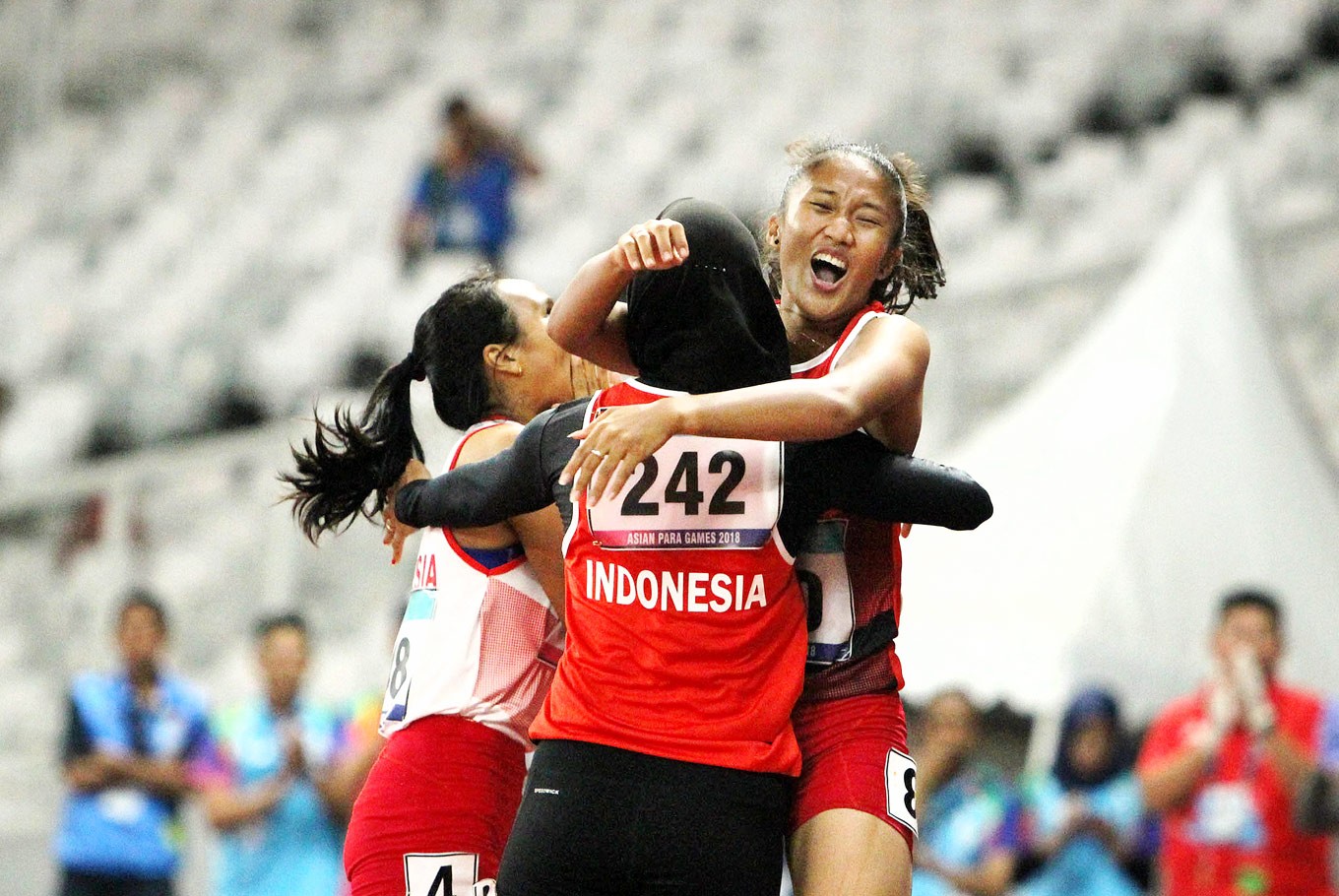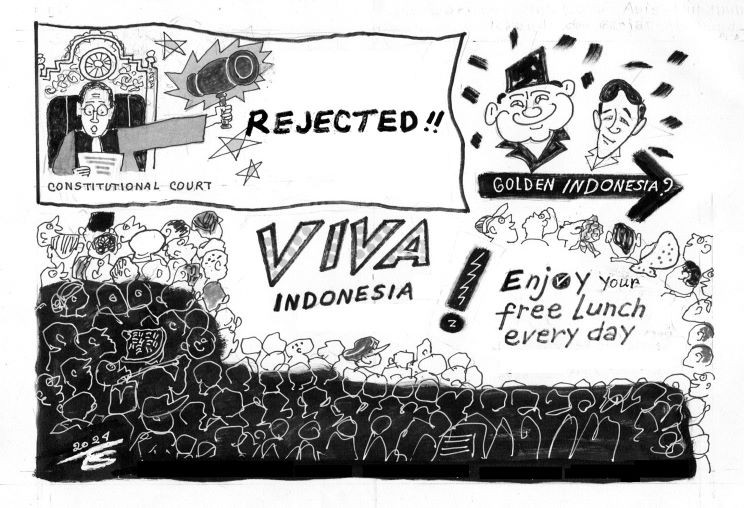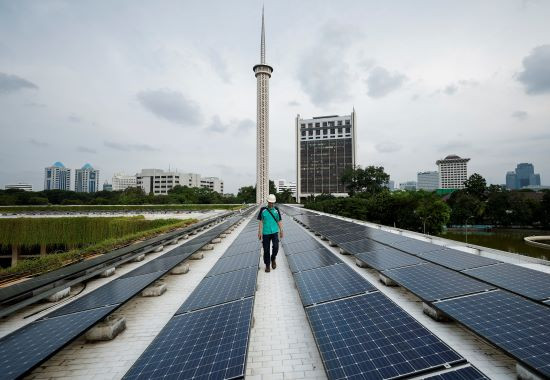Energy and inspiration of Asia: Merging of sports and diplomacy
Throughout history, sports often collide with politics and diplomacy.
Change Size
 Proud moment: Indonesian athletes Putri Aulia (right), Endang Sari Sitorus (center) and Ni Made Arianti Putri celebrate their victory in the women’s 100 meter sprint at the 2018 Asian Para Games at the Gelora Bung Karno sports complex in Senayan on Wednesday. (JP/Charisa Vanessa G.)
Proud moment: Indonesian athletes Putri Aulia (right), Endang Sari Sitorus (center) and Ni Made Arianti Putri celebrate their victory in the women’s 100 meter sprint at the 2018 Asian Para Games at the Gelora Bung Karno sports complex in Senayan on Wednesday. (JP/Charisa Vanessa G.)
T
he 2018 Asian Games in Jakarta and Palembang ended with 45 nations competing in the name of sportsmanship, fairness, and respect. – followed with the Asia Para Games. People have witnessed again how sports can bridge differences in culture, religion, race or even political ideology. When the Korean delegation marched together under one unified flag, international society once witnessed a historic moment of the merging of sports and diplomacy. But can we expect something more than just a ceremony?
Throughout history, sports often collide with politics and diplomacy. We had the ping-pong diplomacy between the United States and China, baseball diplomacy between the US and Cuba, and cricket diplomacy between India and Pakistan. Having international sports events also benefits the hosting countries. The 2014 FIFA World Cup and 2016 Olympic Games in Brazil somewhat enhanced the positive image of Brazil as a regional power. The latest 18th Asian Games is also considered a success for Indonesia. This builds on the nation’s good reputation in hosting international events, as we are bidding to host the 2032 Summer Olympics and also possibly the World Cup in the future.
If winning means everything in sports, diplomacy seeks win-win solutions and negotiations. Moreover, sports and diplomacy don’t always produce beautiful stories after the game. We always wonder what actually happened to the national football team of North Korea after the defeat in the group stage of the 2010 World Cup.
In the latest Asian Games in Jakarta, there was controversy whether the judging of pencak silat would favor Indonesian athletes, as we consider the country to be the birthplace of the traditional martial arts. Perceptions of bias against foreign athletes became a concern for the future of silat, as Indonesia would like to promote the sport as its national heritage and to be competed in the next Asian Games.
However, sports and diplomacy can work hand in hand to promote fairness, respect and friendly behavior between all parties involved, before, during and after the Games. Ceremony and celebration are important for sports, but mutual close ties cannot happen without diplomacy. Athletes from North and South Korea could not have marched together in the last PyeongChang Winter Olympics and in the Asian Games without continuous diplomacy between the two countries.
Likewise even if diplomacy works more behind the doors, it needs a catalysator to help negotiations. The exchange of ping-pong athletes from the US to China in the 1970s paved the way for further diplomatic relations between two countries. What remains in popular memory is the visit of president Richard Nixon to China. These events describe that sports and diplomacy could merge and serve more than just a ceremony.
Indonesia’s successful staging of the Asian Games and Para Games should be considered as a perfect cycle of teamwork between diplomats and athletes. Starting with the effort of the government to bid as a host nation, working under a limited timeline for all preparations and finally engaging with the public and promoting both Games as part of the public diplomacy. During the event, it was the time for the athletes to celebrate the moment.
Last but not least, as part of public diplomacy, the role of people who enjoyed the matches and the atmosphere is an important part of the collision between sports and diplomacy itself. Successful diplomacy is reached when it can influence other’s opinion, as happened when people cheered the unified Korean delegation.
Following both events, Indonesian diplomats need to continue to assure the international community of Indonesia’s capability and positive image abroad, while local enthusiasm towards sports events needs to be maintained. These will support Indonesia’s bidding for the 2032 Summer Olympics. The time has come for Indonesian diplomats, people and athletes to further the positive energy into other diplomatic works.
***
The writers are lecturers of diplomacy in practice at Parahyangan Catholic University, Bandung, West Java.








